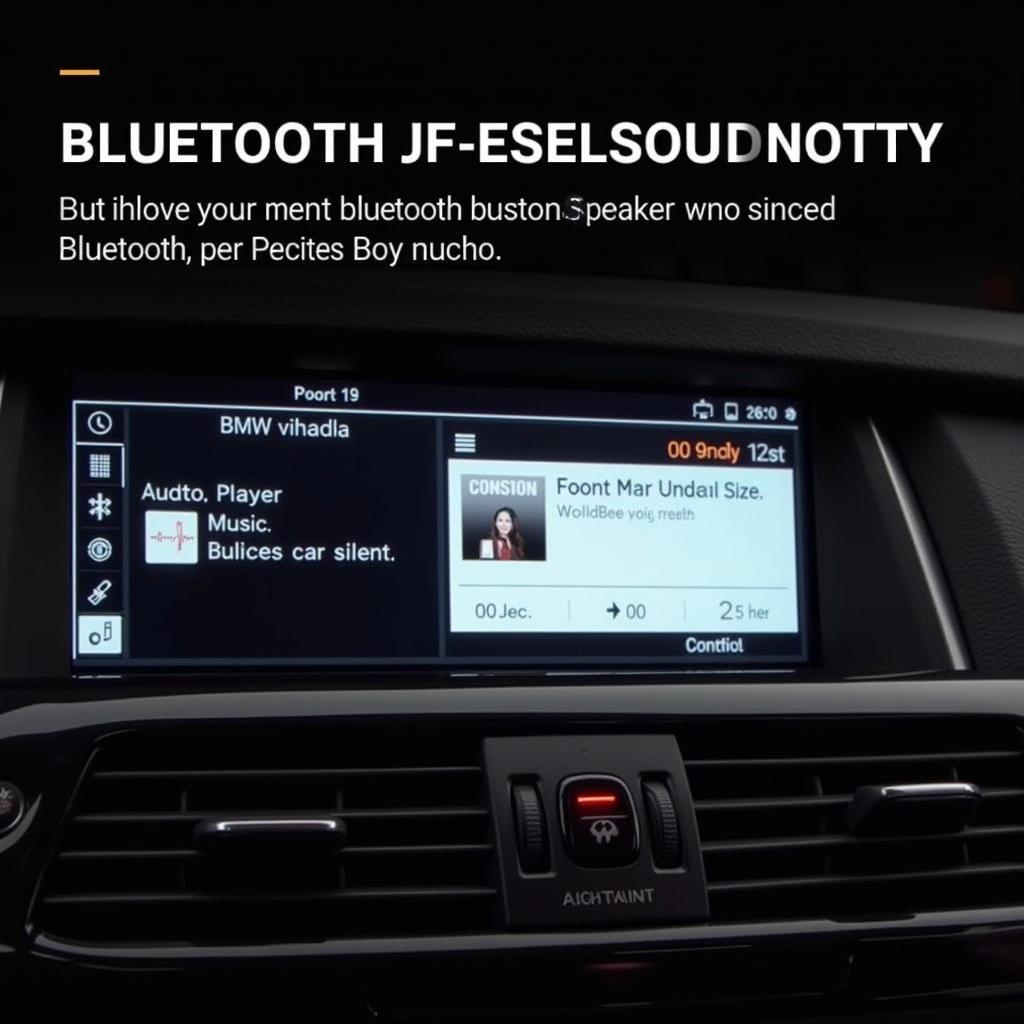The 2014 BMW 335i is known for its sporty performance and satisfying exhaust note. However, understanding the nuances of your 335i’s exhaust sound can help you diagnose potential problems and enhance your driving experience. This guide delves into the world of the 2014 BMW 335i exhaust sound, covering everything from common issues to performance upgrades.
Decoding Your 2014 BMW 335i Exhaust Note
The stock exhaust system on a 2014 BMW 335i is designed to provide a balance between performance and refinement. A healthy 335i exhaust should emit a deep, throaty growl under acceleration, while remaining relatively quiet during cruising. Any deviations from this, such as rattling, hissing, or excessive droning, could indicate a problem.
Common Exhaust Issues in the 2014 BMW 335i
Several issues can affect the exhaust sound of your 2014 BMW 335i. One of the most common is an exhaust leak. Leaks can occur at various points along the exhaust system, from the manifold to the muffler. They often manifest as a hissing or ticking sound, and can negatively impact performance and fuel economy.
Another common problem is a failing catalytic converter. A clogged or damaged catalytic converter can restrict exhaust flow, leading to a loss of power and a change in exhaust sound, often described as a muffled or restricted tone.
Enhancing Your 2014 BMW 335i Exhaust Sound
For those seeking a more aggressive exhaust note, several aftermarket options are available. Cat-back exhaust systems replace the section of the exhaust from the catalytic converter back, offering improved flow and a sportier sound. Performance mufflers can also be installed to alter the exhaust tone, ranging from a deep rumble to a high-pitched scream.
However, it’s important to choose modifications that comply with local noise regulations and don’t negatively impact the vehicle’s emissions.
What Does a Bad 2014 BMW 335i Exhaust Sound Like?
A bad exhaust sound can range from a subtle ticking to a loud roar. Common indicators of a problem include hissing, rattling, popping, or a significant change in the overall exhaust tone. If you notice any unusual sounds, it’s essential to have your exhaust system inspected by a qualified mechanic.
Diagnosing Exhaust Problems
Diagnosing exhaust problems often involves a visual inspection of the exhaust system, checking for signs of damage, leaks, or corrosion. A pressure test can also be performed to pinpoint leaks, and a diagnostic scan can identify issues with the oxygen sensors or catalytic converter.
Conclusion
Understanding your 2014 BMW 335i exhaust sound is crucial for maintaining its performance and identifying potential problems. Whether you’re troubleshooting an issue or looking to enhance your driving experience, this guide provides valuable insights into the world of the 2014 BMW 335i exhaust sound. Remember to consult a qualified mechanic for any repairs or modifications.
FAQ
-
What causes a rattling sound in my 2014 BMW 335i exhaust? A rattling sound can be caused by a loose heat shield, a damaged exhaust hanger, or internal damage to the muffler or catalytic converter.
-
How much does it cost to replace a 2014 BMW 335i exhaust system? The cost can vary depending on the type of system and labor rates, but typically ranges from $500 to $2000.
-
Can I install an aftermarket exhaust myself? While possible, it’s recommended to have a qualified mechanic perform the installation to ensure proper fitment and avoid potential issues.
-
How often should I have my 2014 BMW 335i exhaust system inspected? It’s a good idea to have your exhaust system inspected annually or whenever you notice any unusual sounds.
-
Will an aftermarket exhaust void my warranty? It depends on the specific terms of your warranty and the modifications made. Consult your dealer or warranty provider for clarification.
-
What is the best aftermarket exhaust for a 2014 BMW 335i? The “best” exhaust depends on individual preferences for sound and performance. Research different brands and models to find one that suits your needs.
-
How can I make my 2014 BMW 335i exhaust louder? Installing a cat-back exhaust system or a performance muffler are common ways to increase exhaust volume.
Common Situations and Questions
- Scenario: Noticeable loss of power accompanied by a muffled exhaust sound. Possible Cause: Clogged catalytic converter.
- Scenario: Hissing sound coming from the exhaust. Possible Cause: Exhaust leak.
- Scenario: Rattling sound when accelerating. Possible Cause: Loose heat shield.
Further Exploration
Explore more articles on our website about BMW maintenance and performance upgrades. Learn about common BMW issues and how to address them.
Need Help?
For expert assistance with your 2014 BMW 335i exhaust, contact us via WhatsApp: +1 (641) 206-8880, Email: CARDIAGTECH[email protected] or visit our workshop at 276 Reock St, City of Orange, NJ 07050, United States. Our customer support team is available 24/7.

